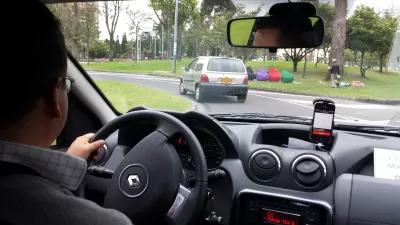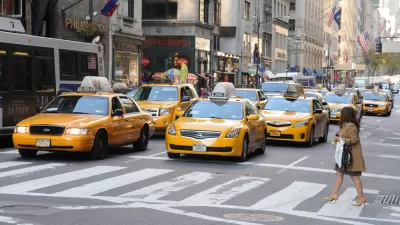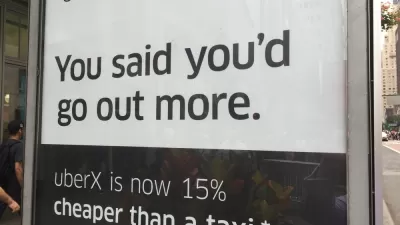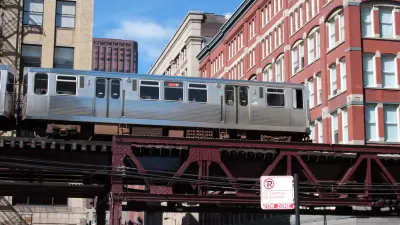A fight over the travel data of shared use mobility companies is just starting in Los Angeles.

Where are those scooters going? Los Angeles is looking to get travel information from scooter shares, but Uber, which provides scooter services through its company, Jump, has voiced concerns. The city has created a data standard called the Mobility Data Specification (MDS) to deal with concerns about privacy and proprietary information, but TNC companies like Lyft and Uber still claim this standard doesn’t do enough. Scooters may seem to be a small piece of the transportation universe, but "Eight scooter- and bike-share companies are permitted to operate up to 36,170 vehicles within Los Angeles county," Aarian Marshall reports for Wired.
Trip information from those companies could be very useful for improving travel in the city. "Data on where those scooters are parked, and where they travel each day, could help officials plan for the future. Over time, the data also could provide the foundation for an app offering residents real-time info about their favorite transit modes," Marshall writes. It could also expose some negative impacts of shared use mobility companies.
Some speculate that after getting data from scooter-share operators, the city will turn its attention to the ride hailing services that Uber and Lyft offer. This information could do more to confirm findings about how much TNCs are adding to congestion and pulling riders out of more sustainable transportation modes like public transit, walking and biking. "Lyft, which also operates scooters in LA, also submitted objections to MDS during a public comment period," Marshall reports. Uber attempted to deliver data on its own terms with its program Uber Movement, but the city complains that this data is too limited to offer the public the information the city needs to improve its transportation resources.
FULL STORY: WHY UBER IS FIGHTING CITIES OVER DATA ON SCOOTER TRIPS

Planetizen Federal Action Tracker
A weekly monitor of how Trump’s orders and actions are impacting planners and planning in America.

Congressman Proposes Bill to Rename DC Metro “Trump Train”
The Make Autorail Great Again Act would withhold federal funding to the system until the Washington Metropolitan Area Transit Authority (WMATA), rebrands as the Washington Metropolitan Authority for Greater Access (WMAGA).

DARTSpace Platform Streamlines Dallas TOD Application Process
The Dallas transit agency hopes a shorter permitting timeline will boost transit-oriented development around rail stations.

LA County Creating Action Plan to Tackle Extreme Heat
Los Angeles County is creating a Heat Action Plan to help communities stay safe during extreme heat, with steps like adding more shade, improving buildings, and supporting the neighborhoods most at risk.

Maryland Plans Quick-Build Complete Streets Projects
The state will use low-cost interventions to improve road safety in five Maryland counties.

Downtown Los Angeles Gears Up for Growth
A new report highlights Downtown L.A.’s ongoing revival through major housing projects, adaptive reuse, hospitality growth, and preparations for global events in the years ahead.
Urban Design for Planners 1: Software Tools
This six-course series explores essential urban design concepts using open source software and equips planners with the tools they need to participate fully in the urban design process.
Planning for Universal Design
Learn the tools for implementing Universal Design in planning regulations.
City of Charlotte
Municipality of Princeton
Roanoke Valley-Alleghany Regional Commission
City of Camden Redevelopment Agency
City of Astoria
Transportation Research & Education Center (TREC) at Portland State University
US High Speed Rail Association
City of Camden Redevelopment Agency
Municipality of Princeton (NJ)





























